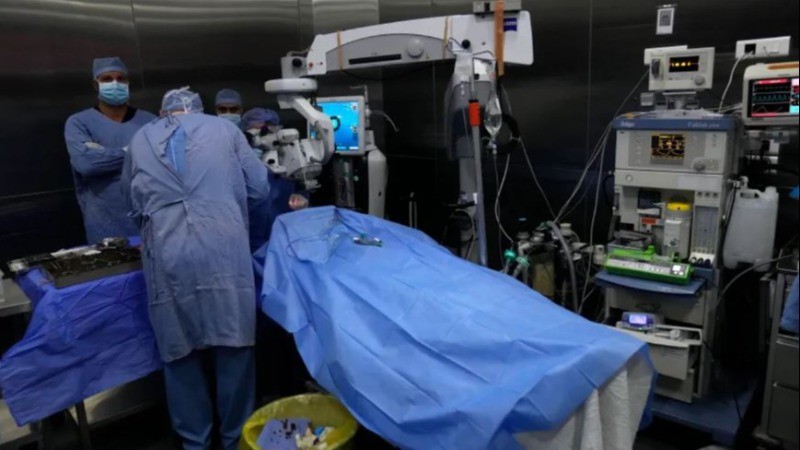
For almost a week, ophthalmologist Elias Jaradeh has been tirelessly treating patients with eye injuries caused by a mass explosion of pagers and walkie-talkies across Lebanon. These devices exploded simultaneously, leaving many with severe eye damage. Jaradeh has performed numerous operations in multiple hospitals, working with only two hours of sleep between surgeries. Despite his best efforts, while some patients' vision has been saved, many others have lost their sight permanently.
Jaradeh described the situation as overwhelming, with a constant influx of patients, many of whom are young men, but also include children and women. He expressed his sadness, saying, "There is no doubt that what happened was extremely tragic, when you see this overwhelming number of people with eye injuries arriving at the same time to the hospital."
Lebanese hospitals were flooded with injured patients after the devices exploded last week, killing at least 39 people and injuring around 3,000 more. Many of the victims were civilians who suffered injuries to their eyes, hands, and faces, as they were looking at the devices when they detonated. While authorities have not provided an exact number, it is clear that a significant number of people have lost their eyesight.
Although the explosions seemed to target Hezbollah fighters, civilians were also among the victims. Doctors, including Jaradeh, who have treated war injuries in Lebanon before, said they have never seen anything like this. Most patients arriving at Jaradeh’s hospital had severe damage to one or both eyes, with shrapnel from the devices found inside their eyes.
Four years ago, Lebanon experienced a massive explosion at the Beirut port, which killed over 200 people and wounded more than 6,000. Jaradeh treated patients then too, but he noted that this current crisis is far more intense due to the sheer volume of people with eye injuries.
"The shock from the Beirut port blast lasted about 48 hours, but we haven't yet reached the point of containing the shock from this," said Jaradeh.
As a doctor, Jaradeh struggles to balance his emotions with his professional duties. "No matter what they taught you in medical school about distancing yourself, I think in a situation like this, it is very hard when you see the sheer numbers of wounded. This is linked to a war on Lebanon and war on humanity," he said.
This US lawmaker Denounces Racist Cartoon Depicting Her Amid Violence in Lebanon
How an Indian Man Spent 18 Years Stranded in Lebanon: Gurtej's Remarkable Return
Who is Cristiana Barsony-Arcidiacono in the Lebanon Pager Tragedy?